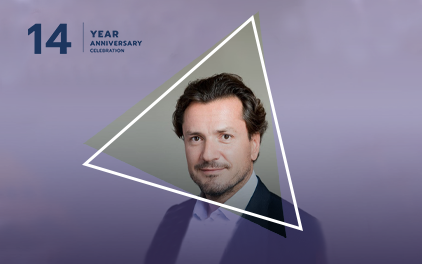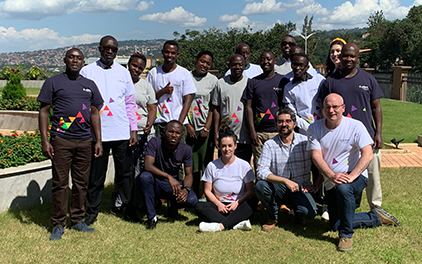Sébastien Breteau is the founder of the Breteau Foundation, a charity committed to promoting access to education in developing countries. The Breteau Foundation believes that every child, regardless of location or background, should have access to a quality education.
Since its inception in 2013, the Breteau Foundation has implemented a range of educational initiatives that today reach 25,000 children. The foundation also empowers hundreds of teachers through their teacher training programs which provide educators with the digital skills necessary to bring forward the next generation. Through its network of partner schools across 10 different countries, as well as through refugee settlements and daycare centers, the Breteau Foundation is providing quality digital educational tools to some of the world’s disadvantaged children
Hi Sébastien, tell us what inspired you to choose a career in education?
Education is the stem of everything. My parents were teachers and I relate very much to the act of mentoring/coaching/passing on knowledge. When I was a teenager, I provided Mathematics tuition to a young girl, who found it very challenging. She persisted and after completing an assessment and gaining a high result, I could really see a change in her self-esteem. I found that a fabulous moment of humanity, when you are able to help someone and you see their progress and improvement. I founded the Breteau Foundation with a view of helping disadvantaged primary school children, providing them with tablets, high quality educational content and providing training to the teachers who support them.
What’s your single proudest achievement in the education sector?
Sadly, global education is not equal. Bringing our programme to the world’s most disadvantaged children is a small step in helping to give children everywhere, regardless of their background and location, an opportunity to succeed. Today, we now have 25,000 children enrolled in our programmes.
What has been the most important development you’ve witnessed in education in your professional lifetime?
The most important development I have witnessed is the quality and diversity of digital technology innovation and the role it has played in enhancing learning. Technology is continually evolving and providing opportunities to improve learning experiences for children. With more educational apps, tablets and mobile devices, children have more interactive and engaging ways to learn which, as we have seen with the children that we work with, motivates them to want to learn and improves their chances of completing education.
Why is free education so important in addressing global inequality?
Education provides freedom and dignity. Where children and adults cannot access education, there is lower educational attainment and fewer opportunities to build a career or a sustainable future. Free education allows anyone from anywhere in the world, no matter their background, to have the same opportunities. This increases their chances for a better future and enables individuals to play a bigger role towards building a stronger community.
Why do you think that online learning has been such a game changer when it comes to democratising education?
For those who do have connectivity, online learning improves access to resources, knowledge and learning. For some countries, switching to online learning has been a tremendous help during the global pandemic.
Unfortunately, for the majority of the communities we work with, online learning is not a possibility and without access to this, these children are significantly worse off. Our initiatives directly address connectivity inequality such as our offline Homeschooling Tablet Programme and our Mobile Education bus in Lebanon which brings education to refugee children. We also have offline Educational apps available in local languages and printed academic workbooks that are distributed into communities so learning can continue.
What in your opinion is the most pressing educational issue globally?
Learning poverty. Pre-Covid, learning poverty was already high, with many children in middle to low income countries not being able to read at a basic level by age 10. Currently, the World Economic Forum has reported that an additional 72 million children will be pushed into learning poverty. We need to be on the front-foot with education and find alternative ways to continue learning for these children.
If you were to recommend one online course to our Learners, what would it be and why?
We have recently partnered with Learn to Be a Better Human (LTBABH), an online e-learning platform that allows you to access micro classes for personal and professional development whilst also giving back a percentage of profits to charities. With LTBABH, we are developing a series of micro-classes that feature children we work with in the countries that our programmes reach. We have just launched our first micro-class ‘Friends Around The World: South Africa – Cape Town’ that aims to develop empathy and to help others understand how children in other countries live their lives. Our micro-classes are a valuable way to learn about someone else’s culture and their day-to-day lives in places that many of us may not have the opportunity to visit.
What advice would you give to Alison’s Learners who are using free online learning to empower themselves?
Learning is a life journey, it should never stop and we should be constantly seeking ways to grow and develop ourselves.




